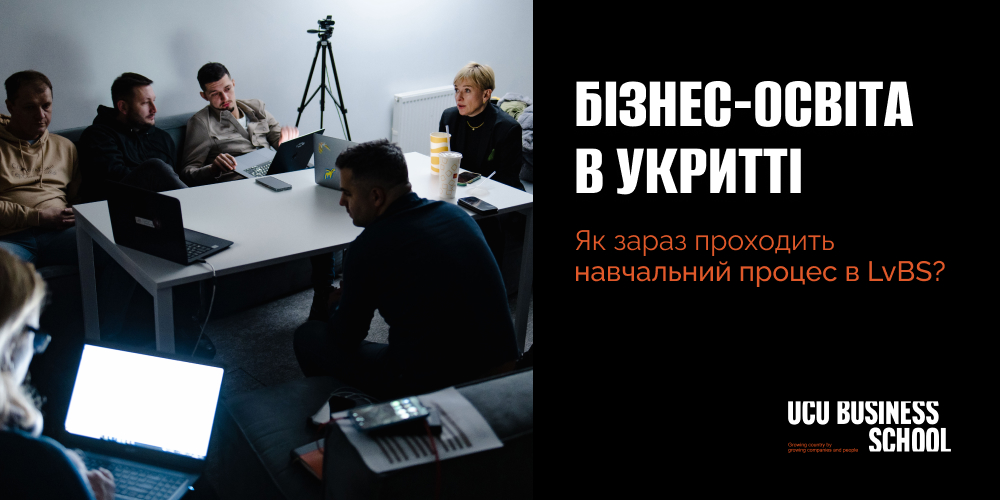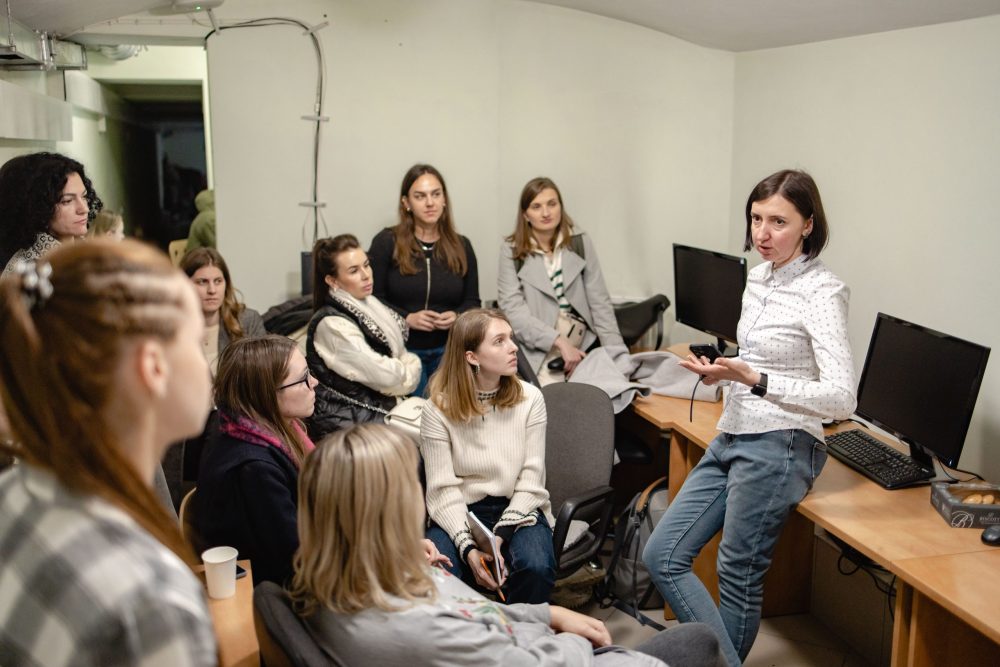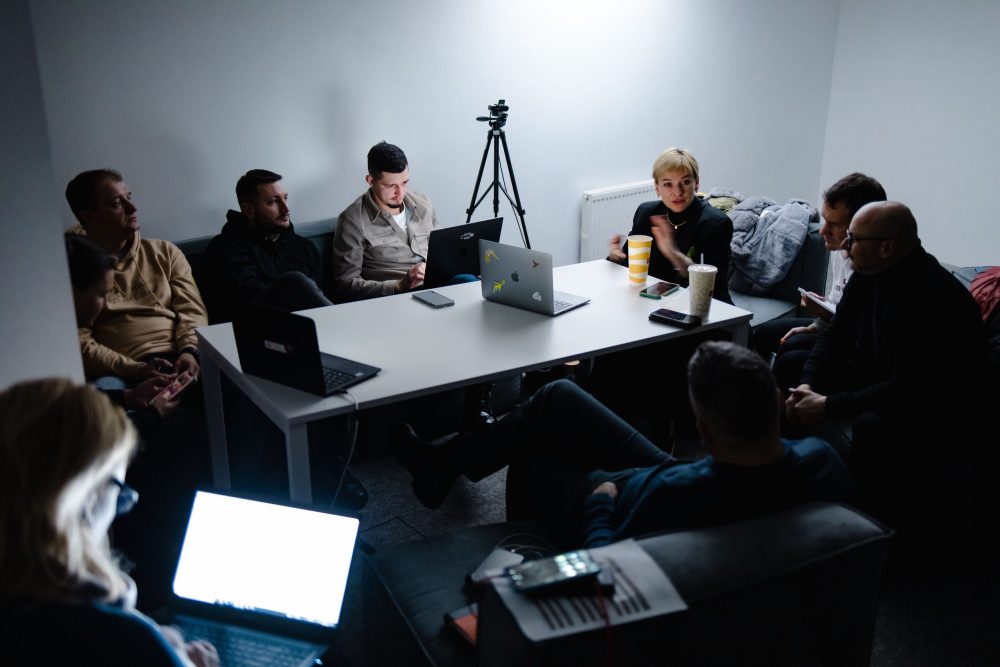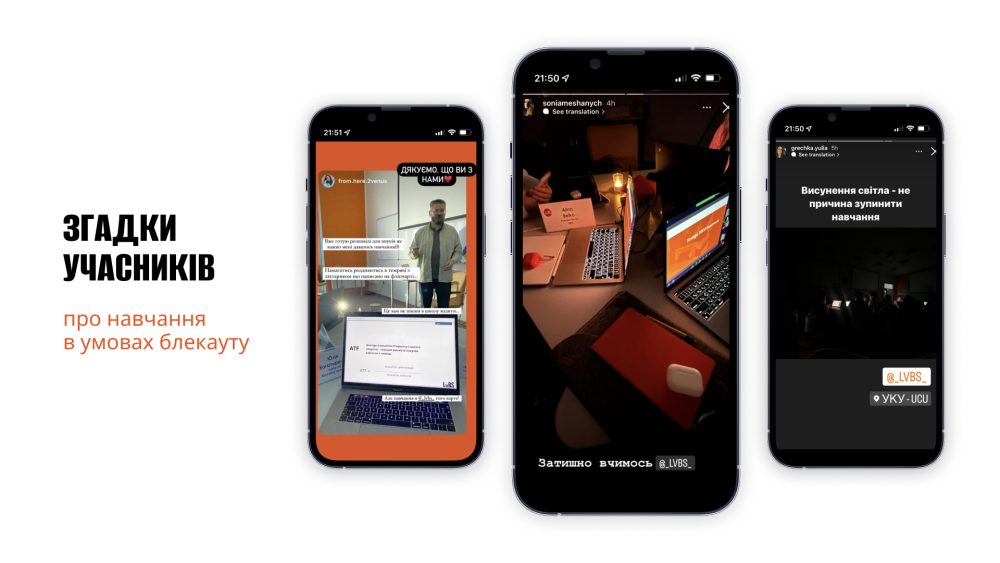During the 285 days of Russia’s invasion of Ukraine, the air danger signal sounded over our country more than 18,317 times. Every day, millions of Ukrainians are under the threat of possible missile attacks, every day they suffer from the consequences of Russian terror: living without light, heat, and water. Despite all this, the business continues to work without giving up: new offices are opened, new channels of purchasing and selling goods are established, entrepreneurs provide high-quality services, create effective interaction with customers, but they also know everything about the power of generators, how to make food stocks for their families and families of employees, and collect funds to help the Armed Forces.
At the same time, business representatives think about their development and further growth. This year alone, more than a hundred people enrolled in the master’s programs of the UCU Business School.
In total, as of now, 200 participants of master’s programs are studying at LvBS, and over the past 6 months, more than 250 people have studied in short and medium-term programs. Is there an action plan developed for studying during air raids, how prepared is the Business School for a blackout and how does it cope with challenges? – we asked Khrystyna Dolna, the operational director of LvBS.

How is studying at the UCU Business School going now? What are the biggest challenges faced in the new school year due to the war?
We often hear that the Covid-19 pandemic has prepared Ukrainians for most of today’s challenges. I agree with that, but there is one very important difference. If during the pandemic your home was a center of safety, now it is not, or some people even have lost it.
According to our observations, we have faced at least two waves of challenges. First, we had to make sure that the return to offline education on the UCU campus is as safe as it is currently possible, and to resolve the issues with the education of those participants who are unable to come to Lviv or have gone abroad. Due to the fact that we are part of UCU, whose buildings have shelters, we were able to return to offline learning as early as May 2022. Since then, we have held numerous sessions in the shelter; teachers and participants have adapted and shared a common space so that the courses can continue despite the difficulties and, most importantly, in safety.
Having solved the security issue, this autumn we met with new challenges: interruptions in electricity supply and Internet connection. So now we have some solutions for different scenarios, namely:
-learning process during an air raid in a shelter;
-learning process during power outage;
-learning process during both an air alert and power outage.

Turning off the lights, air alarms, discharged equipment – how do these factors affect the educational process?
We continue our studies and the absence of electrical illumination does not mean the absence of light which is shared by all participants of our programs. The university has ensured the availability of generators that support power on the ground and first floors of buildings on campus. Also, one of the buildings has a generator that covers the entire building. So, we’ve developed a new “how-to guide” for our teachers and colleagues on what to do in the event of a shutdown situation. We try to use daylight as much as possible, and, when needed, we transfer presentations to the computers of participants and colleagues. The teachers prepare thoroughly; they make hard copies of materials (printed out or designed on flipcharts). Also, some materials are sent to the participants the day before, so that they can save them on their own devices and do not need an Internet connection to use them.
It is more difficult, of course, to take into account the risks of power outages with those participants who join online modules. After all, we can’t help them from a distance even if we wanted to. They try as much as possible to find places and opportunities for uninterrupted communication, and we, for our part, try to help them catch up with those parts of the material that they miss due to lack of connection.

How do the participants respond to these challenges, how open are they to them and how does this affect their resilience?
Due to the great uncertainty, we notice that the decision-making time for participation in the program (of new participants) has decreased to two weeks before the start of training. Previously, places on the programs were “taken away” long before their start. According to our statistics, after mass missile attacks by the enemy, we consistently record several rejections and understand what risks this entails for us.
On the other hand, we are incredibly pleased when we see how, regardless of power outages and air alarms, participants continue to register for programs, make payments and make maximum efforts to come to us for studies from Odesa, Kharkiv, Kropyvnytskyi or many other corners of our country.

I really like to welcome groups in which studies have just started. I am glad when I see many raised hands of those who are studying with us for the first time (which, according to my observations, is 40% of the group). Some say that learning for them is the switch of attention, and it will allow to create a kind of plan, and we are moving toward the goal together. Someone has been considering taking up classes with us for a long time and never could make up his mind/find the time and now makes this decision, because when, if not now?
Every day, we see that our sense of community and bringing people together gives us support and ability to face today’s challenges. We are very proud of our alumni community and how they support each other and the projects they run during wartime. And the annual meeting of graduates, where they share their experience, achievements and skills, is the best proof of this.
Also, we try as much as possible to be in touch with both program participants and teachers, to communicate what has been done and what the conditions are, so that we can continue studies in an offline format.

What would you advise those people who, despite all the challenges and inconveniences, do not reject the desire to learn, but are not sure whether it will be effective in today’s conditions? Is business education up to date?
First of all, it is important to understand what result you want or set for yourself and your company during and after the studies. For example, it can be new knowledge/skills, new contacts/potential clients, or learning the experiences of other business people who live and evolve in the same conditions. It’s all possible, the main thing is your openness and willingness to listen to the stories of others and “put on the table” your own. After all, it is easier to share victories, but the more you share failures or moments of decline and how you were able to move forward, the more trust and support of the community you will receive.
Uncertainty scares each of us, and sometimes it is difficult to make one more of the hundreds of decisions that must be made every day. But it often happens that, while studying, you will receive partial answers to your challenges from your colleagues in the group, teachers and the Business School in general. After all, the line of our products is built in such a way that you can choose the format and duration of training that is convenient for you, and we will be happy to suggest/advise which of the programs will best cover your requests.






















